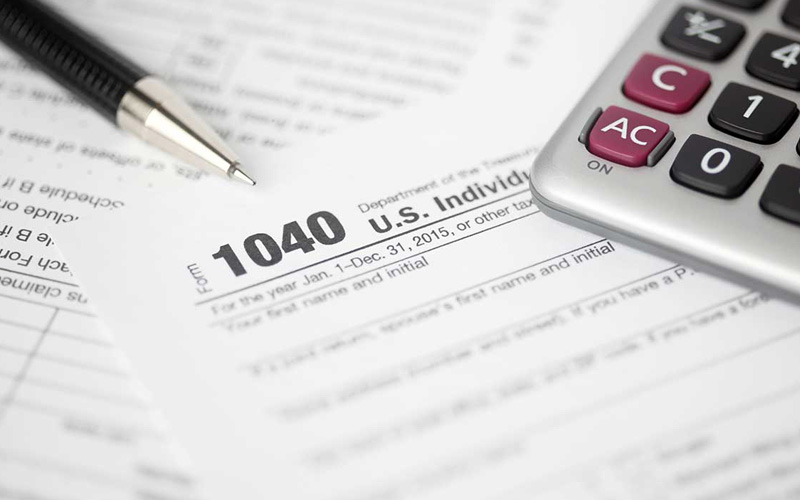Tis’ the Season to Be Prepared
It’s here once again, citizens of the Rio Grande Valley, and no, we don’t mean the end of football season. While our beloved state sport is going away for a couple of months, there’s something else on the horizon that needs our attention just as much as a Cowboy’s game—tax season.
That’s right. Tax season is here, and with it, confusion, frustration, and perhaps a little bit of worry.
But it doesn’t have to be that way.
Here at the offices of Abigail Y. Murray CPA, we’re absolutely excited about tax season (yes we’re a little different like that). Not only do we get to showcase all of our abilities as professional CPAs, but we also get a chance to talk with and answer all of the questions our clients and friends may have.
We’ve probably heard every type of tax-related question, and that’s why we’ve assembled some of the most common questions people ask, so you can be in the know.
If you don’t find your question below, just give us a call at (956) 800-5600, and we’ll be sure to point you in the right direction.
Now without further ado…
When are my taxes due?
The due dates for taxes this year is April 18th. While taxes are usually due on the 15th, we get an extra three days this year because of the weekend and a federal holiday on the 17th.
If you’ll be filing for an extension this year, you’ll have until Oct. 16th, but be aware—you will still have to pay what you estimate you owe by April 18th.
How can I file an extension?
Sometimes life gets in the way, so if the April 18th deadline doesn’t look like a “can do” for you, then you’ll need to file for an extension. It’s important to recognize that an extension DOES NOT get you out of paying for due taxes by the deadline, but rather gives you extra time to file.
Why should you file for an extension then? For one, an extension will stop a late-filing penalty of 5% of the unpaid tax for each month you’re late (which can accumulate to up to 25%). Then there’s the late-payment penalty of 0.5% for the unpaid taxes for each month. Let’s not forget the interest rate which runs at the federal short-term interest rate plus 3%.
What’s new this tax season?
Not much has changed since the previous tax year; there’s a provision that allows seniors to donate IRA withdrawals to charities without having to declare them as taxable income, and the personal exemption deduction has risen from $4,000 to $4,050.
As previously mentioned, the tax filing deadline has moved to April 18th this year.
Perhaps the biggest news this year is that the IRS said they wouldn’t begin issuing refunds until after Feb. 15th on returns that claim the earned income tax credit or additional child tax credit.
The 2017 tax season will likely see much bigger changes because of a new presidency and governing Republican body in Congress. Check back here frequently to find out new information as the year rolls along.
Do I need to file a return?
It depends on a number of things including your filing status, age, and the type of income you receive. Most full-time workers are going to need to file a return, but things can get a bit tricker for individuals 65 and older.
You can figure out whether or not you need to file by using this online IRS tool.
Even if you aren’t required to file, it still might be worth your time to do so, as you might still be eligible to qualify for a refund (the IRS stated that about 70% of Americans are expected to qualify for refunds this year).
What documents do I need to file my taxes?
Generally, most taxpayers will need their W-2 form, 1099 tax forms, and forms that come from their banks. Other information you might need, depending on how you are filing, will include social security numbers of dependents and receipts from charitable contributions. Don’t forget to round up information on interest paid to school loans.
When can I file my taxes?
The IRS began accepting electronic returns on January 23rd.
You have until 11:59 PM on April 18th to file your taxes electronically, but this isn’t the best idea, as a bad internet connection or faulty computer can lead to issues and penalties.
If you plan on filing your taxes through “snail mail,” you’ll want to send them in much earlier, and have your return and payment postmarked by April 18th. Some post offices stay open late on Tax Day, so give your local office a call to find out if they do.
If you file electronically, you should have the option to pay via online use the IRS’s Electronic Funds Withdrawal function.
Who can I claim as a dependent?
The most obvious choice for many taxpayers is going to be children, but those aren’t the only people that you can claim. In some cases you are able to claim elderly parents, significant others, and some relatives depending on the status of your relationship to them. There are certain standards in place, but if applicable, a dependent can provide you a $3,900 deduction.
Is there anything available for me as a parent?
Kids are a blessing—and not just because you can take advantage of them in your taxes by claiming them as dependents. If you have a child, or children, you can benefit from deductions and credits including:
- Child and dependent care tax credit—This credit is for parents who have to pay for childcare and it’s worth up to $1,050 per child.
- Earned income tax credit—This is for low to middle income working Americans and can be as much as $6,044.
- Child tax credit—This credit can be used for those of us with larger families and can get you up to $1,000 per child under the age of 17.
How long will it take me to get my tax refund back?
This year, most individuals will probably see a longer time frame in getting their refund back. That’s because to combat tax fraud, the IRS is going to be more stringent with filers who have either claimed Earned Income Tax Credit or the Additional Child Tax Credit.
What this means is that no one will see their refunds until late February at the earliest. Additionally, some refunds may face additional review before being sent out. If things go smoothly though, you should be issued a your tax refund in the standard window of 21 days from the time they get your return.
For how long should I keep my records?
The IRS recommends that you keep your tax documents for up to three years. If you have happen to get audited, this is generally how far back they are able to review.
If they suspect tax fraud, underpayment of income tax, or if you’ve written off worthless credits, they can go back up to seven years. Always keep tax documents, receipts for business expenses, forms for charitable donations, and the likes.
Don’t stress this tax season. Call up the professionals at Abigail Y. Murray CPA for the support you need and tax expertise you deserve.
Abigail Y. Murray CPA isn’t just another accounting firm, and you’re not just another customer. Save yourself the headache this year and get an experienced accountant on your side. Our knowledge, experience, and up-to-date techniques means we can make this tax season the best one for you yet—who would’ve thought that was even possible with taxes!
Contact us today at (959) 800-5600 and let’s make this tax season a great one for you.


